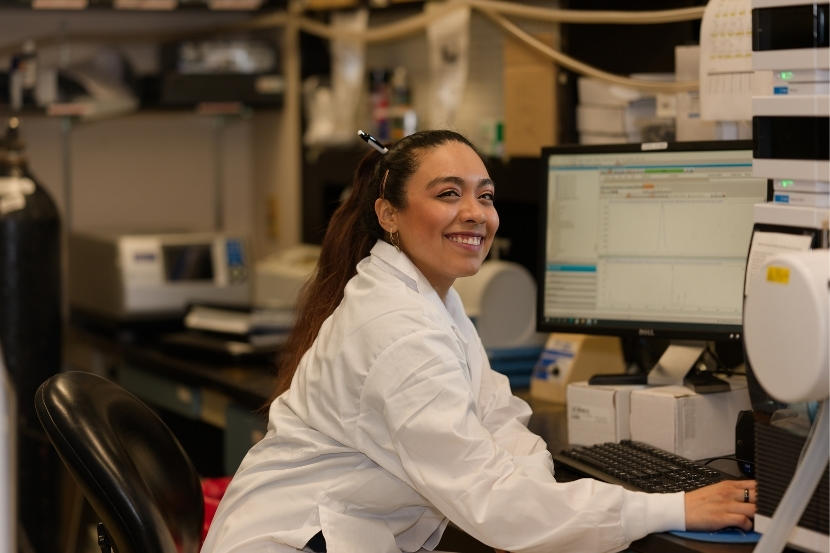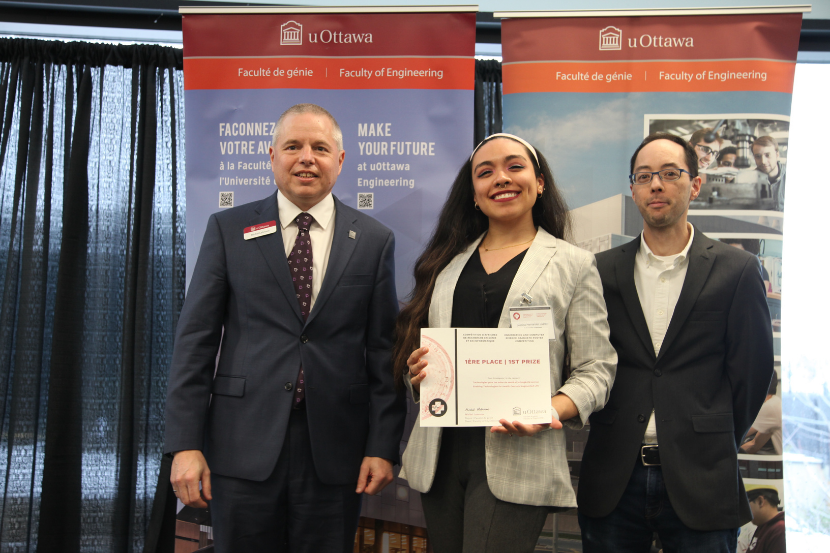According to the Heart & Stroke foundation, a heart attack occurs in Canada every nine minutes. While the immediate crisis might pass, the damage can linger. Heart attack survivors live with a higher risk of other cardiovascular events and chronic complications. Jéssica Hernández Juárez, a PhD candidate in biomedical engineering at the University of Ottawa, wants to change that.
Her research could transform how we care for people who’ve just had a heart attack by targeting a toxic byproduct called methylglyoxal (MG). Hernández Juárez is helping the body heal more effectively, potentially reducing long-term strain on patients and the health-care system.
Trapping the molecular villain: methylglyoxal
When a heart attack strikes, the body enters a state of extreme stress. “Because of all the strain the body goes through during a heart attack, the body produces this toxic molecule called methylglyoxal that can alter other biological processes and increase the incidence of other diseases and complications in the long term,” Hernández Juárez says.
So how do you stop a tiny molecule like methylglyoxal from wreaking havoc on the body? You trap it.
Hernández Juárez’s research focuses on developing a material that can neutralize this toxic molecule, giving the body a better chance of healing.
Diverse expertise was needed for such research, in biomedical engineering, chemistry, biology and materials science. Hernández Juárez works with two postdoctoral fellows, David García Schejtman and Juan David Alegria, as well as fellow biomedical engineering student Ramis Ileri.
Under the supervision of Drs. Erik J. Suuronen and Emilio Alarcón at the University of Ottawa Heart Institute, Hernández Juárez and her team began by designing collagen-like peptides, proteins that closely resemble others that occur naturally in the body. They tested multiple versions, tweaking structure, concentration and composition to see which combinations were most effective at trapping methylglyoxal.
Once they had a few promising candidates, they moved to biological tests, successfully. “The chosen material has proven to be able to protect cells and other proteins from methylglyoxal damage in a physiologically relevant timeframe,” says Hernández Juárez.
The team’s next steps will be to look into developing a suitable delivery mechanism.

Beneficial new health care technologies
With millions of Canadians living with cardiovascular disease, the implications of Hernández Juárez’s work go well beyond the lab. A therapy that limits long-term damage after a heart attack could be beneficial to many. Not only would it improve individual quality of life for those affected, but it could also reduce health-care costs and ease pressure on hospitals and clinics.
In a field where treatments often address symptoms long after the fact, Hernández Juárez’s research represents a shift—toward prevention, regeneration and smarter healing.
When she completes her master’s, Hernández Juárez already knows that she wants to pursue a PhD. “There is so much more to find out,” she says. “I love being in the lab, learning new things and generating knowledge.”
Enabling health-care technology: A uOttawa Engineering priority
Jéssica Hernández Juárez was awarded first place in the enabling technologies for health care and augmented life area at the 2025 Engineering and Computer Science Graduate Poster Competition, held during Research Day at the Faculty of Engineering.
Research by uOttawa Engineering in this area focuses on developing innovative tools, devices and systems that support health, enhance mobility and improve overall well-being.



